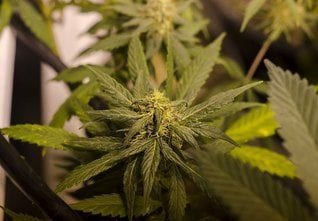They updated their FAQ page about marijuana
-
The National Cancer Institute recently updated its ‘Frequently Asked Questions’ page about marijuana to include the various studies that have revealed how cannabis “may inhibit” cancerous tumor growth by causing cell death, blocking additional cell growth, and blocking the development of blood vessels needed by cancerous tumors to grow, while also protecting normal, healthy cells.
“A laboratory study of cannabidiol (CBD) in estrogen receptor positive and estrogen receptor negative breast cancer cells showed that it caused cancer cell death while having little effect on normal breast cells,” the NCI stated. “Studies in mouse models of metastatic breast cancer showed that cannabinoids may lessen the growth, number, and spread of tumors.”
Here are some of the NCI’s findings:
- Studies show that, in mice and rats, cannabinoids may inhibit tumor growth by causing cell death, blocking cell growth, and blocking the development of blood vessels needed by tumors to grow. Laboratory and animal studies have shown that cannabinoids may be able to kill cancer cells while protecting normal cells.
- A study in mice showed that cannabinoids may protect against inflammation of the colon and may have potential in reducing the risk of colon cancer, and possibly in its treatment.
- A laboratory study of delta-9-THC in hepatocellular carcinoma (liver cancer) cells showed that it damaged or killed the cancer cells. The same study of delta-9-THC in mouse models of liver cancer showed that it had antitumor effects. Delta-9-THC has been shown to cause these effects by acting on molecules that may also be found in non-small cell lung cancer cells and breast cancer cells.
Aside from these recently updated NCI findings, the Drug Enforcement Agency’s director, Chuck Rosenberg, made a statement regarding marijuana saying that, “heroin is clearly more dangerous than marijuana” and this statement seems to hint that DEA is slowly, but finally accepting that marijuana is not lethal compared to drugs such as Heroin, LSD, cocaine, and alcohol.
Medical and recreational marijuana use has been increasingly legalized by many states and Washington D.C., but the federal government still classifies marijuana as a Schedule 1 drug, right along with heroin and ecstasy, stating that marijuana has a potential for abuse and no known medical benefits. However, now that the NCI has shown these recently found benefits, the DEA may be forced to address these findings.


